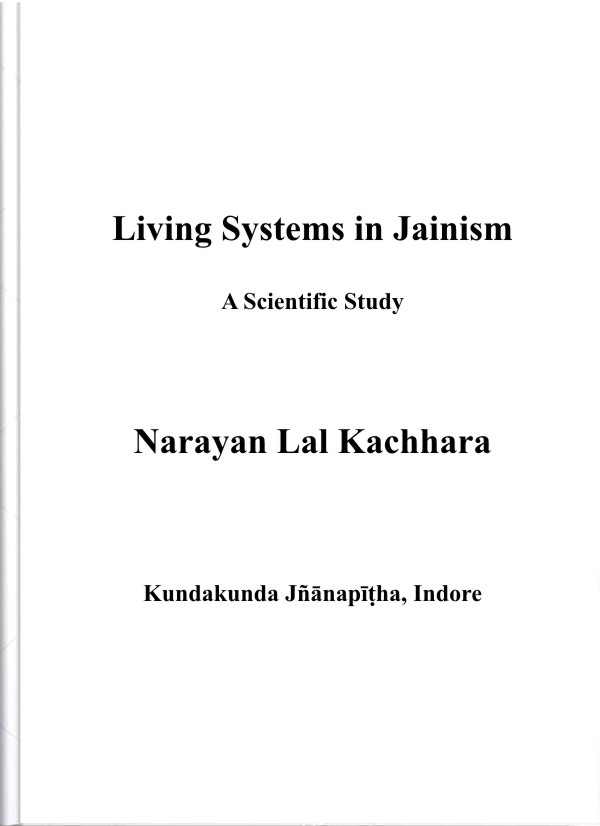Perceptual cognition is the knowledge obtained due to the sense organs and the mind. This knowledge is conceptual consciousness and is determinate. The mind establishes contact with the external world through the senses. Sense signals are communicated to the brain, and then contacts are made with the mind. If the connection between the sense organs and the brain is broken, the mind cannot know the object. The thinking process starts when the object is perceived by the mind.
There are different elements of perceptual cognition. Perceptual cognition (mati) takes stock of a present objective datum; recollection (smriti) has reference to a datum perceived in the past; recognition (samjna) is the cognition of the similarity of a past object of perception with another in the present; thought (chinta) is the cognition of a future event. All these varieties of cognition are considered identical despite the difference of perceptions because the substantive object is the same. Abhinibodha is a type of cognition that can view an object with all its temporal determinations in past, present and future. Matijnana (empirical knowledge) is a comprehensive class of cognitions. Thus, for example, there are purely sensuous cognitions, purely mental cognitions, and cognitions which are generated by both the senses and the mind. The cognition of beings from one-sensed beings to five-sensed beings without minds is purely sensuous. Recollection and instinctive intuition are purely mental. The normal cognitions of beings endowed with mind are generated by the cooperation of the mind and the senses.
Nandi divides mati into the following two varieties.
1. Sruta nisrita - the intellect based on scriptures or depending on verbal symbol. These are of four types (i) Avagraha - sensation, (ii) Iha - speculation, (iii) Avaya -judgment, and (iv) Dharana - retention.
Sensation means cognition of a generic character in the wake of the intuition of the contact between the sense and the object without the manifestation of any particular characteristic of the contact. The sensation is in respect of the vyanjana (possible object) and the artha (plausible object). The vyanjana sensation means indeterminate cognition of objects such as sound and the like through the contact between the object and the sense organ. This is a judgment like "there may be something." There occurs in the trail of this sensation another sensation called artha-sensation, which cognizes the object a little more distinctly, though devoid of the concepts of class, substance and attributes. This is a judgment like "there exists something." Speculation consists in the experience "this must be that." The speculation constitutes the intermediate stage between indeterminate perception and determinate perceptual judgment. Speculation is an attitude of the mind which leads to the determination of the specific character of the object by laying emphasis upon the real characteristics that are perceived and the elimination of the unreal attributes that are not cognized. Perceptual judgment is the specific determination of the object "this is that." The persistence of the perceptual judgment is called retention.
There are four categories of matijnana, perceptual cognition: (i) jnana due to sense organs, (ii) jnana exclusively due to mind, (iii) jnana due to joint activity of the senses and the mind, and (iv) jnana independent of both mind and sense organs viz, instinctive intuition. According to Jain epistemology, all cognitions are nothing but different states of soul and as such are only cases of emergence and not origination proper, the senses and the mind being auxiliary conditions or instruments only. Instinctive intuitions of the plant kingdom as well as underdeveloped animal organisms fall under category (iv). Memory, recognition and discursive thoughts are cases of matijnana under (ii) and (iii). Sensuous cognition of the five-fold sense data (touch, taste, etc.) is an instance of (i).
2. Asrutanisritathe intellect based on sources other than scriptures. This includes the following four buddhi, (commonly translated as intellect).
- Autpattiki buddhi. The sense of striking at the right point, which was never seen, heard or otherwise known before, and thus leading to a successful result is known as autpattiki buddhi (natural genius or intuition).
- Vainayiki buddhi. The intellect of finding out a right solution in a complicated matter is known as vainayiki buddhi. It is attained through education and self-discipline, or by service to guru.
- Karmaja buddhi. The intellect developed through practice in a particular vocation.
- d. Parinamiki buddhi. The intellect attained through inference, reason, and other methods of rationality and ripened with the advancement of age is known as parinamiki buddhi. It helps in mundane as well as spiritual attainments.
 Dr. N.L. Kachhara
Dr. N.L. Kachhara
